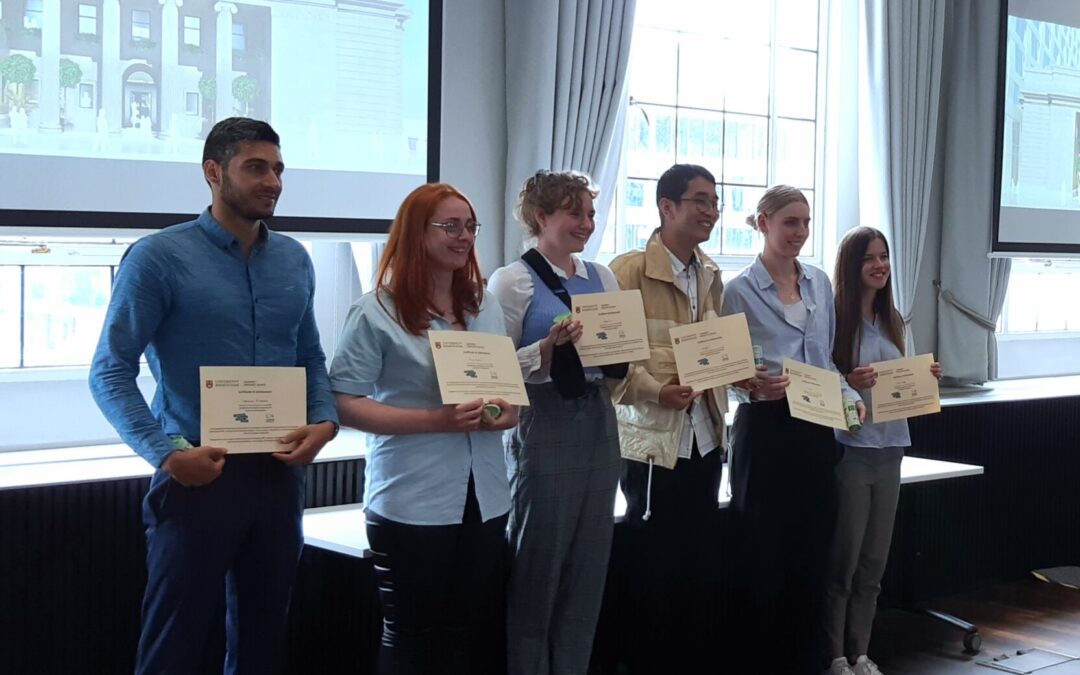From 27 June to 1 July Tyseley Energy Park (TEP) partnered with the University of Birmingham to support the 2022 Postgraduate Enterprise Summer School (PESS).
Each year, PESS invites a selection of postgraduate researchers to work in interdisciplinary teams for an intensive week of training and development. The comprehensive programme includes interactive professional skills training sessions, research opportunities, site visits and guest speaker sessions. The teams are tasked with investigating a real-life strategic challenge and developing a proposed solution that is subsequently presented to a panel of judges in a Dragon’s Den style pitch competition.
Nicola Gittins, Deputy Director for Entrepreneurship and Student Enterprise explained that this was an opportunity for the students to apply their skills and abilities in a challenging, new experience whilst aiding their exploration of future careers.
This year the challenge, set by David Horsfall, Director of TEP was to explore how TEP can build on its involvement in the East Birmingham region with an emphasis placed on social inclusion, green mobility, and local prosperity. To support their background research the teams visited TEP, where they were able to see first-hand the Low and Zero Carbon Refuelling Station, the Hydrogen Refuelling Station, and the University of Birmingham’s Energy Innovation Centre. The students were able to explore the new innovations progressing on site and learn about the history of the family business that shaped the foundation for energy park.
Proposed solutions from the teams included an e-bike charging station called e-Trek, a residential solar power project and a last-mile green delivery service for local restaurants and take-aways.
The solution proposed by the winners of the competition suggested utilising the canal infrastructure for use with hydrogen-fuelled canal boats for cargo, taxi, and tourism services. The “More Canals Than Venice” team built on an existing research project which showed the feasibility of converting canal boats to hydrogen.
Speaking of TEP’s partnership in PESS 2022, David Horsfall said: “It has been a pleasure to work with students from the University of Birmingham on the PESS. We are committed to supporting the decarbonisation of the region and we always welcome innovative suggestions to explore what else we could be doing. All the participants were engaged and showed an amazing ability to grasp a complex range of environmental, political, legislative, and social issues.”
Mossen Randeree, Impact Lead for TEP and the Birmingham Energy Institute added: “Tyseley Energy Park are a fantastic employer partner for PESS and I truly appreciate David Horsfall’s commitment for this project. I would also like to thank the University of Birmingham team and Stephen Harris from Quesst consultancy for their excellent work in leading this programme. The teams were dedicated and were able to recognise how essential their skills are in the fight against climate change and air pollution.”
Nicola Gittins thanked Tyseley Energy Park, saying that this was an “absolutely invaluable opportunity for students to apply their learning to a real challenge. They have all taken some learning from it, bringing to light some really important issues.”
Professor Michael Hand, Director of Postgraduate Research, commented that the collaboration and interdisciplinary working will stand students in good stead in preparing them for a whole variety of careers in future, in research, consultancy or as entrepreneurs.

